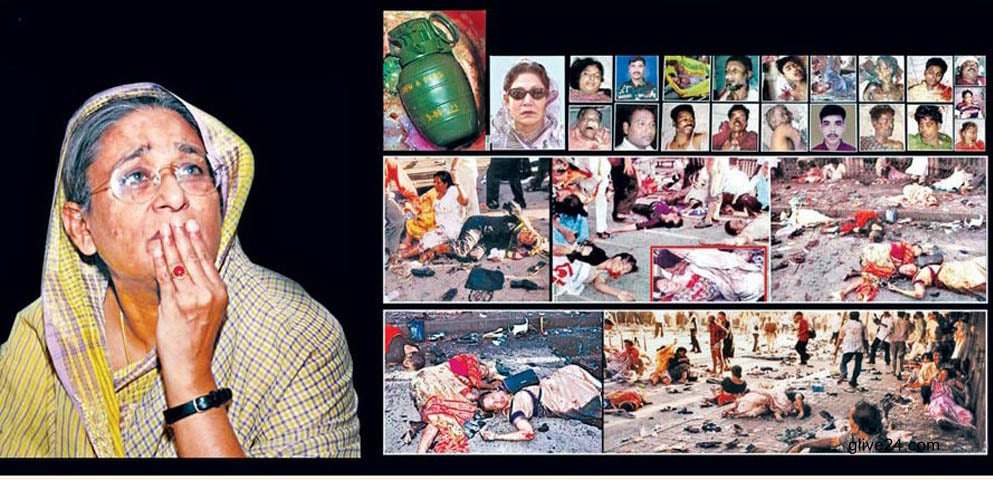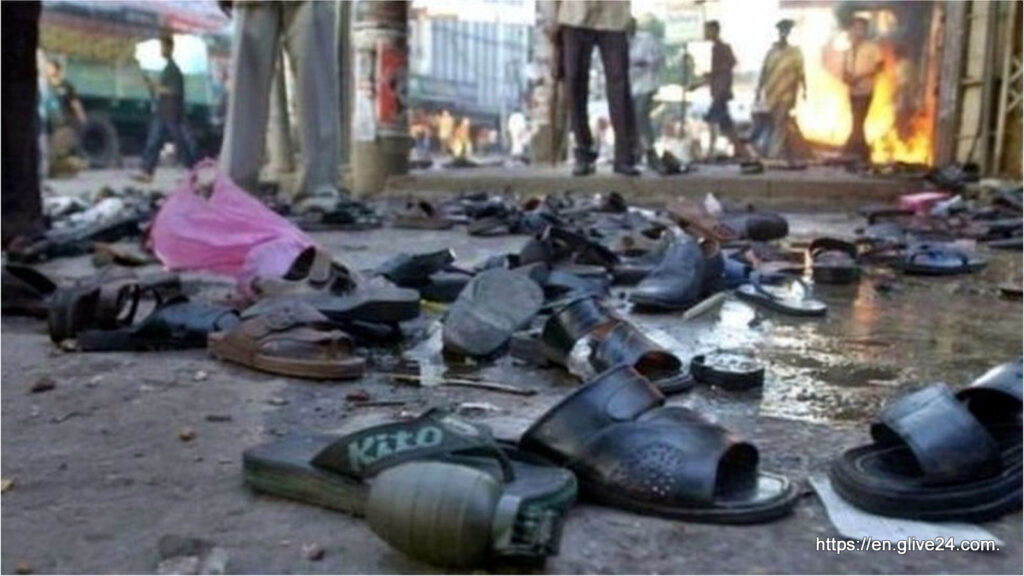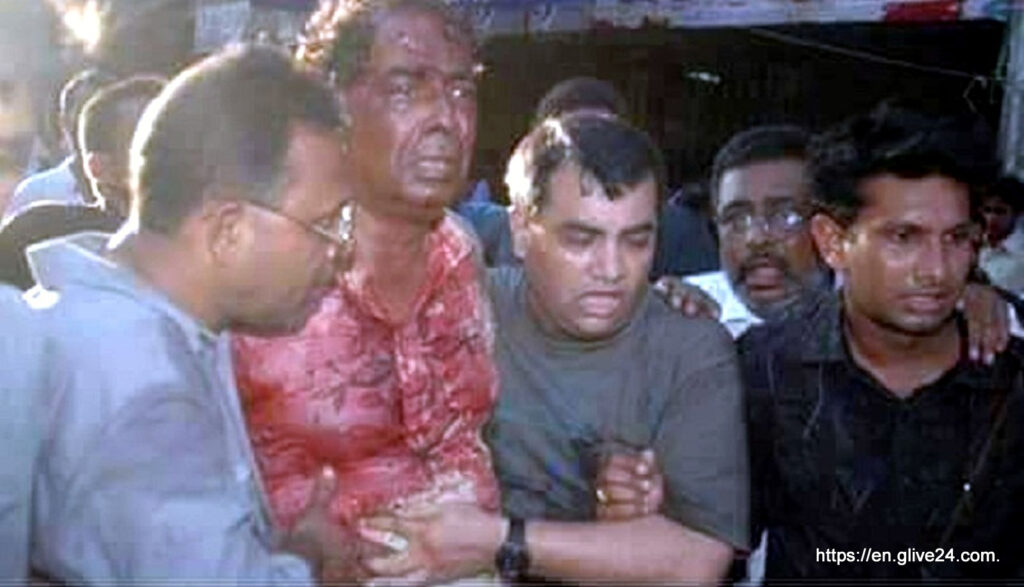On August 21, 2004, Bangladesh witnessed one of the most horrendous political attacks in its history. The grenade attack, targeting an Awami League rally in Dhaka, resulted in the death of over 20 people and injuries to hundreds. This event didn’t just highlight the volatile political landscape of Bangladesh at the time, but also emphasized the rising terrorism concerns in the region.
Table of Contents
The 2004 Grenade Attack
1. Background
Political Climate
In 2004, Bangladesh’s political environment was fraught with tension. The country had experienced several military coups since its independence in 1971, with power primarily oscillating between the Bangladesh Awami League, led by Sheikh Hasina, and the Bangladesh Nationalist Party (BNP), led by Khaleda Zia. The fierce rivalry between these parties often led to violent confrontations.
Awami League’s Position
In the early 2000s, the Awami League was in the opposition, with the BNP leading the government. The Awami League was vocal in its criticism of the ruling party, accusing it of promoting extremism and failing to safeguard the nation’s secular foundation.
2. The Attack
A Planned Rally
On that fateful day in August, the Awami League organized a rally against terrorism and to demand the government’s resignation due to their alleged failure in curbing extremist elements. Thousands gathered at Bangabandhu Avenue in Dhaka, with Sheikh Hasina addressing the crowd from a truck.
Chaos Unleashed
As Sheikh Hasina concluded her speech, a series of grenades were hurled at the gathering. The first explosion resulted in immediate panic, with subsequent explosions causing even more havoc. The attackers also opened fire on the panicked crowd. Amidst the chaos, Hasina was rushed to safety, although she suffered hearing loss due to the blasts’ proximity.
3. Aftermath and Repercussions
Immediate Impact
The aftermath was devastating. Over 20 people died, including Ivy Rahman, the Women’s Affairs Secretary of the Awami League. Hundreds were injured, many critically. The visuals of the bloodied streets and injured victims showcased the sheer brutality of the attack.
National Outcry
The incident shocked the nation. There were immediate demands for a thorough investigation and calls for the resignation of the government, which was accused of failing to provide adequate security for the rally.
Global Response
The international community condemned the attack. Many nations, including India, the United States, and the United Kingdom, expressed their condolences and urged Bangladesh to bring the perpetrators to justice.
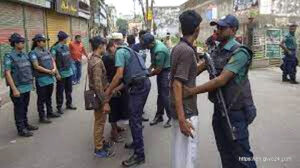
4. Investigations and Findings
Initial Probes
Despite the national and international pressure, the initial investigations were criticized for lacking transparency and thoroughness. The opposition accused the ruling BNP of trying to protect certain groups.
Revelations
Subsequent probes, especially after the change of government in 2009, revealed deeper conspiracies. The investigations implicated several members of extremist groups and even some members of the intelligence and security agencies. There were claims of the involvement of international terrorist networks and hints of a broader conspiracy to destabilize Bangladesh.
Trials and Convictions
After years of investigations and trials, in 2018, a special court in Dhaka sentenced 19 people to death and 19 others, including former state minister for home affairs Lutfozzaman Babar, to life imprisonment in connection to the attack.
5. Implications for Bangladesh
Political Implications
The attack further deepened the rift between the two main political parties in Bangladesh. The BNP faced increased scrutiny and criticism, while the Awami League used the attack to rally its base, emphasizing its secular credentials and its commitment to fighting extremism.
Counter-terrorism Focus
The attack and other similar incidents around the same time forced Bangladesh to confront the reality of domestic terrorism. The government took steps to bolster its counter-terrorism efforts, with increased international collaboration to address the issue.
Societal Changes
The violence of the attack underscored the dangers of political extremism. Civil society organizations, educational institutions, and media outlets began campaigns and initiatives aimed at promoting tolerance, secularism, and a unified national identity.
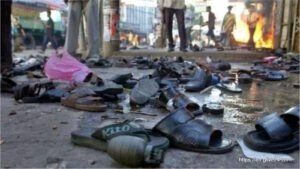
6. Reflections
While the 2004 grenade attack was a dark chapter in Bangladesh’s history, it was also a turning point. The collective shock and grief led to introspection, catalyzing efforts to confront and counter extremist ideologies and to bridge political divides. The resilience of the Bangladeshi people was evident in the subsequent years as they continued their journey towards a more inclusive and tolerant society.
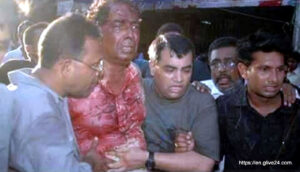
The 2004 grenade attack in Dhaka wasn’t just an assault on a political party but an attack on the foundational values of Bangladesh. As the country remembers and mourns the victims, it is also a reminder of the threats that divisive politics and extremism pose to a nation. Yet, amidst the tragedy, the story of Bangladesh’s response – one of resilience, unity, and determination – shines through. The nation’s journey post-attack offers lessons in confronting extremism, fostering national unity, and upholding democratic values.
